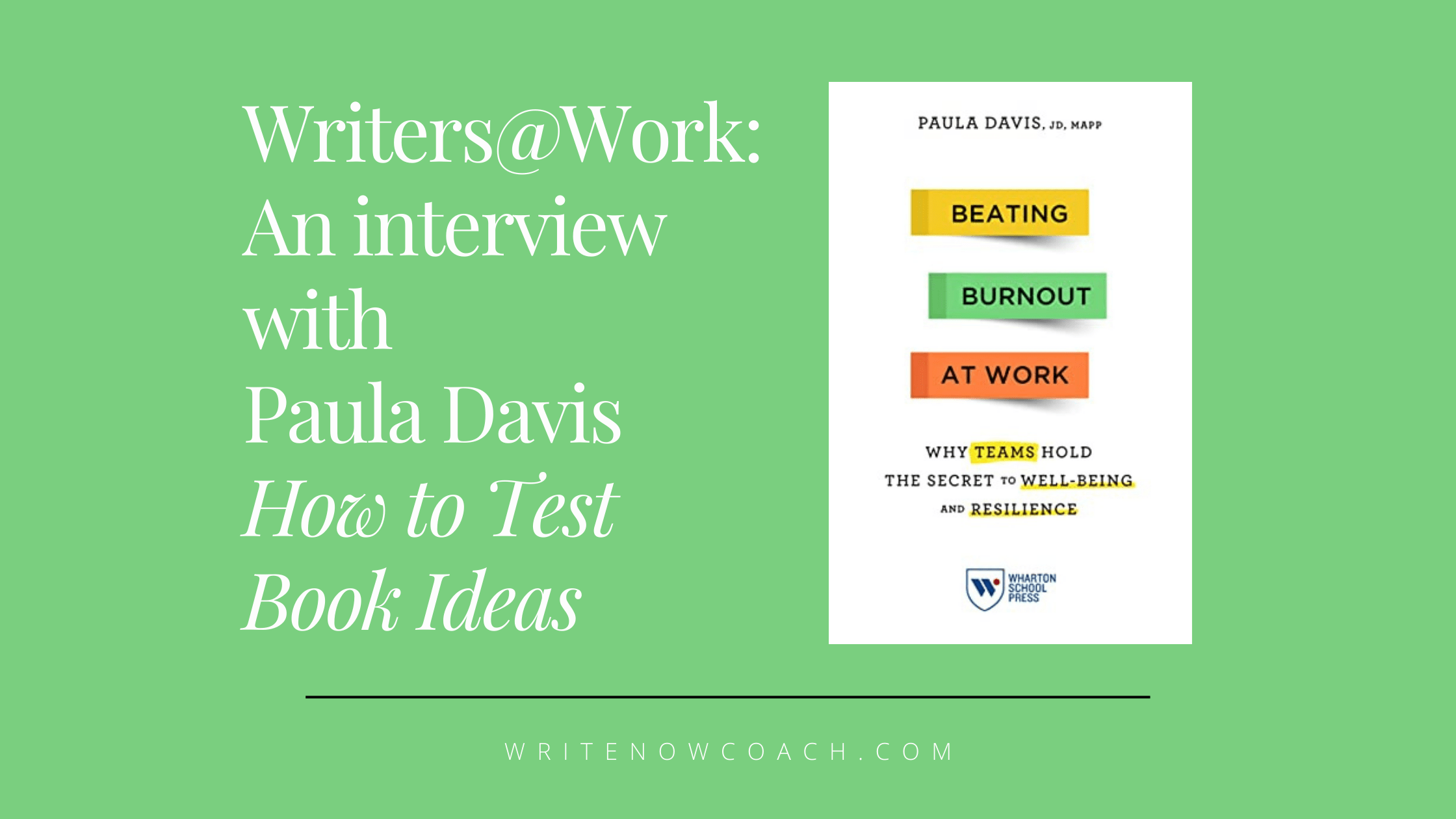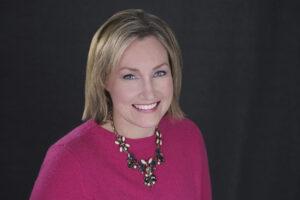How to Test Book Ideas
March 9, 2021
Note From Rochelle
Dear Writers,
I’m still looking for a writer who has ADHD and would like a complementary session. If you’re interested and willing to be recorded, please send me an email with this information:
+Name, time zone and free times.
+The specific issue you’d like to have coaching about.
I’ll choose the first three people who respond who have schedules that match mine. If you don’t get chosen, don’t worry! I plan to do some workshops on writing and ADHD this summer. Thanks in advance.
Today, I’m delighted to welcome Paula Davis to talk about her brand new book—out today!—Beating Burnout at Work: Why Teams Hold the Secret to Well-Being and Resilience. Paula appeared on the blog ten years ago to talk about writing and resilience: The Resilient Writer. Welcome Paula!
Enjoy!
Rochelle

Writers@Work:
How to Test Book Ideas
An Interview with Paula Davis
Welcome to the blog and congrats! Can you tell us about your new book, Beating Burnout at Work: Why Teams Hold the Secret to Well-Being and Resilience. What led you to write this book?
Thank you! My new book is about burnout prevention at work. My work in this space started over 10 years ago when I burned out toward the end of my law practice. I didn’t know what burnout was when it happened to me, and so it became my mission to study the science of well-being and resilience to help educate leaders, busy professionals, and organizations about stress and the effects of burnout. The book is really the culmination of my 10 years of thinking about, talking about, and teaching about this topic. I was quite off-base when I first started thinking about the topic. I assumed I had done something wrong and had flawed stress management skills which resulted in my burnout experience. As I’ve discovered, burnout is a complex, systemic issue that requires a systemic approach. Individual programs are fine, but they’re only a first step. Organizations really need to educate leaders and help fortify teams in a way that creates the positive cultures needed to really slow down or prevent burnout. People can learn more about my book at www.beatburnoutnow.com.
You are extremely busy—running a company and parenting. What tools did you use to carve out time and stay focused so that you could write your book?
I really had to compartmentalize my time in a pretty strict way. I had a lot of support. Lucy’s dad took on an additional parenting load so that I could have the time and space that I needed not only to write, but to also read, re-read, and absorb the many research studies I needed to also incorporate into my book. It was very important for me to present a research-based method in my book. In addition, my cousin Bettina helped me in the early stages as well. She created a Google document that pulled together many of my studies and musings over the years so I could have a more organized approach to my writing. As a first-time author, I learned a lot through this process. Even with the help, I was nowhere near as organized as I could have or should have been. Deadlines have always been something that I’ve needed in actually executing my creative work, so signing a publishing agreement and being held to strict timelines and deadlines also was crucial.
What was your experience in moving from idea to publication? What tips would you offer to other coaches and consultants?
I have always tried to “test” my ideas before doing something bigger with them, like creating an e-book or a new program for my business. I would encourage that as well. I wrote lots of blog posts about various ideas I had, and used conferences as a way to test out new material to see what resonated. I knew that my idea of pivoting toward resilience at the team level was a good one when I spoke about that topic and it was voted a most valuable session at a large conference. That gave me the confidence to run with that idea. Still, though, I spent most weekends for a year just writing and expanding on my ideas. I rarely showed drafts to anyone, so writing the book is one thing. Letting people know about it and your ideas is the 2nd phase. To do this 2nd phase well, you need good PR help, and I have it. My publicist is getting my book into places I never imagined, and that is growing and expanding my reach.
What do you do to stay resilient and creative?
Thanks to my years practicing law (lawyers can analyze any topic from any angle), I’m very much an overthinker, so I practice strategies to limit my overthinking on a regular basis. I check myself with friends, and get their advice and opinions if I’m seeing the world a little too strictly. Those and other mental strengths practices have helped me with my resilience enormously. I also am religious about exercising regularly. My world requires a lot of energy, and I just don’t have it unless I’m working out. So, I do a lot of running—mainly 3 miles at a time—but almost every day. It’s one of the only activities where I feel I can “lose” myself and my mind, and it sparks such creative ideas. I also do a lot of kickboxing.
What are you reading now?
I haven’t had time to settle in with a good book in a long time. I most recently read Brene Brown’s book Dare to Lead, and I just ordered Cal Newport’s new book, A World Without Email.
 About the Author. Paula Davis JD, MAPP, is the Founder and CEO of the Stress & Resilience Institute, a training and consulting firm that partners with organizations to help them reduce burnout and build resilience at the team, leader, and organizational level. Paula left her law practice after seven years and earned a master’s degree in applied positive psychology from the University of Pennsylvania. Paula is the author of Beating Burnout at Work: Why Teams Hold the Secret to Well-Being & Resilience, which is about burnout prevention using a teams-based approach. Beating Burnout at Work has been nominated for best Spring 2021 book by the Next Big Idea Club, which is curated by Adam Grant, Susan Cain, Malcom Gladwell, and Daniel Pink. Paula’s website is www.stressandresilience.com, and you can reach her directly at paula@stressandresilience.com.
About the Author. Paula Davis JD, MAPP, is the Founder and CEO of the Stress & Resilience Institute, a training and consulting firm that partners with organizations to help them reduce burnout and build resilience at the team, leader, and organizational level. Paula left her law practice after seven years and earned a master’s degree in applied positive psychology from the University of Pennsylvania. Paula is the author of Beating Burnout at Work: Why Teams Hold the Secret to Well-Being & Resilience, which is about burnout prevention using a teams-based approach. Beating Burnout at Work has been nominated for best Spring 2021 book by the Next Big Idea Club, which is curated by Adam Grant, Susan Cain, Malcom Gladwell, and Daniel Pink. Paula’s website is www.stressandresilience.com, and you can reach her directly at paula@stressandresilience.com.








